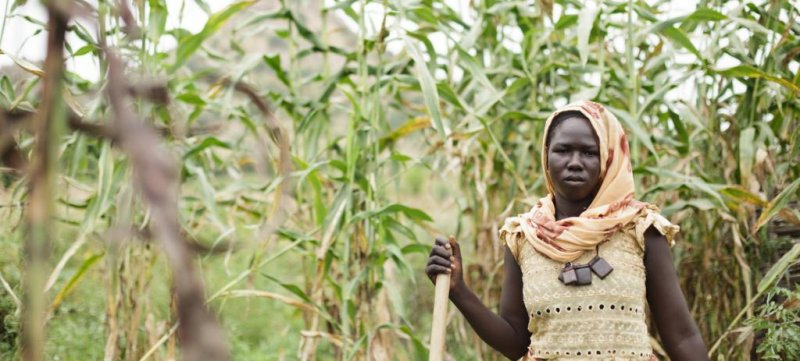In 2019, average earnings per capita in LDCs was $1,088 compared with a world average of $11,371, the U.N. agency said

A family farmer is shown in Chad, Africa, one of the least developed countries extremely vulnerable to the economic shock caused by COVID-19.
Dec. 3 (UPI) -- The COVID-19 pandemic's impact may pull 32 million people back into extreme poverty, the U.N. Conference on Trade and Development warned Thursday in a new report.
The economic fallout from the pandemic has risked reversing years of "painstaking progress" addressing poverty in the the least developed countries, UNCTAD warned in a statement on the report.
"The COVID crisis is leading LDCs to their worst economic crisis in 30 years, with per capita GDP for the group expected to fall by 2.6% this year," UNCTAD Secretary General Mukhisa Kituyi said during a virtual press conference.
In the LDCs, the pandemic is expected to lead to an increase in poverty of 3 percentage points, from 32.2% to 35.2%, equating to an increase of 32 million people living in extreme poverty.
The UNCTAD report, which defines extreme poverty line as $1.90 per day, found that the economic impact of the COVID-19 pandemic has led to a bleak economic growth outlook worldwide, but the outlook is even worse for LDCs, especially African and island LDCs.
The LDCs have been hit the hardest because they are "among the world's most vulnerable economies," and they have the least financial and infrastructure means to react to economic shocks such as the the economic fallout from the pandemic, according to the report.
In 2019, average earnings per capita in LDCs was $1,088 compared with a world average of $11,371, the U.N. agency said.
Kituyi urged the international community to help the LDCs overcome their vulnerabilities and improve their manufacturing capacity to avert the potential economic crisis.
"The LDCs that have been most active and innovative in combating the pandemic have been those with the most productive capacity or institutional capacity," Kituyi said. "Countries like Senegal, which produced cheap and rapid COVID testing kits, Bangladesh and others like Ethiopia, repurposing garment factories to produce PPEs (personal protective equipment)."

A family farmer is shown in Chad, Africa, one of the least developed countries extremely vulnerable to the economic shock caused by COVID-19.
File Photo by Asselin/UNICEF
Dec. 3 (UPI) -- The COVID-19 pandemic's impact may pull 32 million people back into extreme poverty, the U.N. Conference on Trade and Development warned Thursday in a new report.
The economic fallout from the pandemic has risked reversing years of "painstaking progress" addressing poverty in the the least developed countries, UNCTAD warned in a statement on the report.
"The COVID crisis is leading LDCs to their worst economic crisis in 30 years, with per capita GDP for the group expected to fall by 2.6% this year," UNCTAD Secretary General Mukhisa Kituyi said during a virtual press conference.
In the LDCs, the pandemic is expected to lead to an increase in poverty of 3 percentage points, from 32.2% to 35.2%, equating to an increase of 32 million people living in extreme poverty.
The UNCTAD report, which defines extreme poverty line as $1.90 per day, found that the economic impact of the COVID-19 pandemic has led to a bleak economic growth outlook worldwide, but the outlook is even worse for LDCs, especially African and island LDCs.
The LDCs have been hit the hardest because they are "among the world's most vulnerable economies," and they have the least financial and infrastructure means to react to economic shocks such as the the economic fallout from the pandemic, according to the report.
In 2019, average earnings per capita in LDCs was $1,088 compared with a world average of $11,371, the U.N. agency said.
Kituyi urged the international community to help the LDCs overcome their vulnerabilities and improve their manufacturing capacity to avert the potential economic crisis.
"The LDCs that have been most active and innovative in combating the pandemic have been those with the most productive capacity or institutional capacity," Kituyi said. "Countries like Senegal, which produced cheap and rapid COVID testing kits, Bangladesh and others like Ethiopia, repurposing garment factories to produce PPEs (personal protective equipment)."
No comments:
Post a Comment